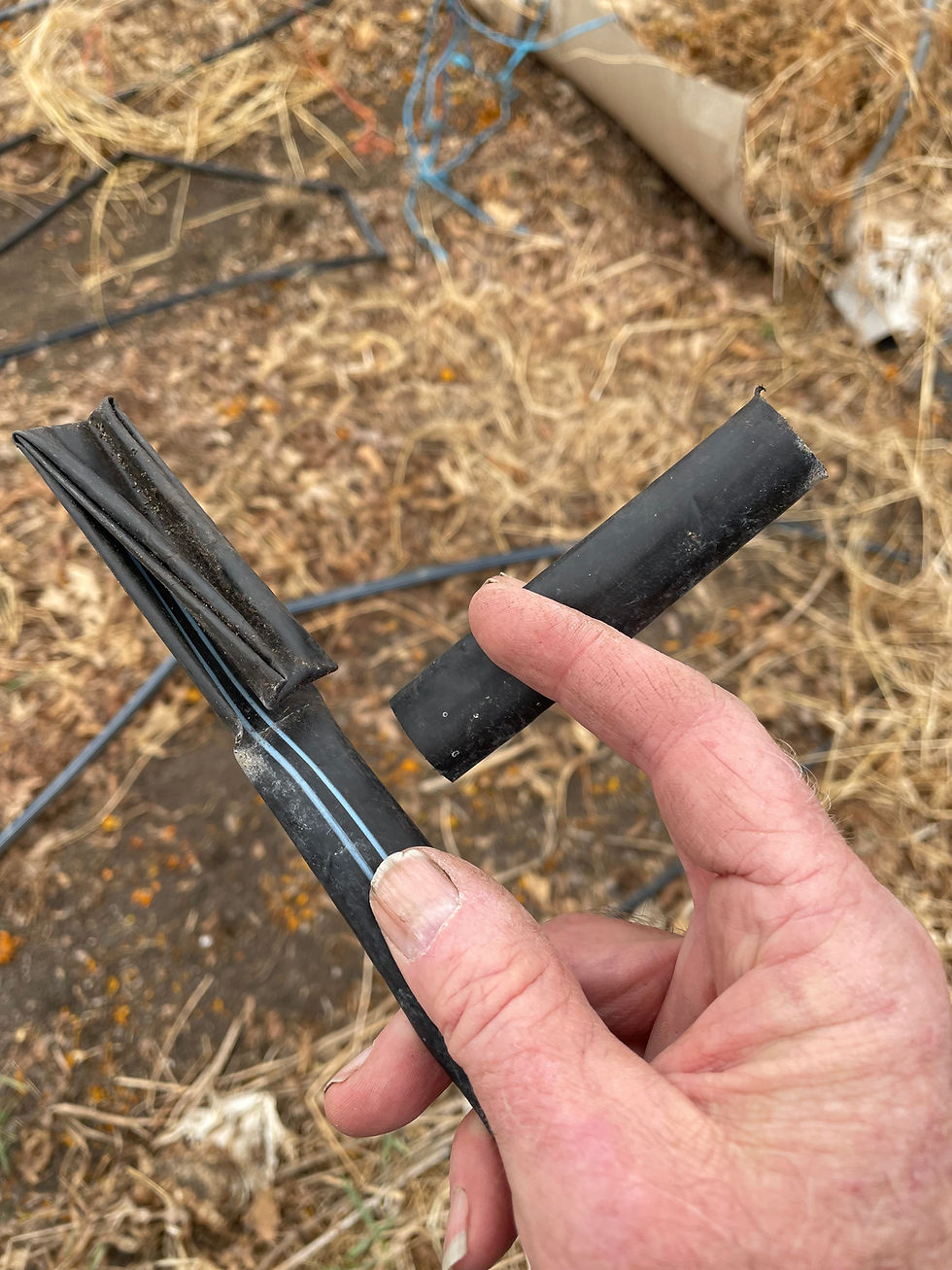Opinion: Water and Farming: A Crucial Connection
- Adjoa Kittoe
- Jul 11, 2023
- 3 min read
By Adjoa Kittoe
Water and farming are inextricably linked, and access to a reliable supply of water is essential for food production and agricultural activities. Unfortunately, water scarcity is becoming increasingly common in many parts of the world and is having a severe impact on agricultural production.
Water scarcity is caused by several factors, including climate change, population growth, overuse of water resources, and inefficient irrigation systems. Climate change is causing more frequent droughts and extreme weather events, which have a direct impact on water availability. In addition, the rapidly growing population is putting increasing strain on the world’s water resources, as more and more people compete for a limited supply of water.
Overuse of water resources is also a significant contributor to water scarcity. Agriculture accounts for 70% of global freshwater use, and in many regions, the water demand exceeds the available supply. This overuse of water resources can lead to the depletion of aquifers and surface water sources, resulting in long-term water scarcity. Inefficient irrigation systems are another cause of water scarcity. Flood irrigation, a traditional method of irrigation that has been used for centuries in many parts of the world, including Egypt, Mesopotamia, China, and other regions with a long history of agriculture, can be highly wasteful, with up to 60% of water lost to evaporation or runoff. This inefficiency can exacerbate water scarcity and limit the availability of water for other uses.
The effects of water scarcity on farming are far-reaching. Without access to a reliable source of water, farmers are unable to sustain their operations, resulting in lower yields and increasing food insecurity. This is particularly problematic in developing countries, where limited access to water can have devastating consequences. Water scarcity also affects the quality of crops. When plants receive inadequate water, they may not grow as tall or produce as many fruits or vegetables, leading to lower yields and lower-quality crops. In some cases, water scarcity can also lead to the loss of entire crops, which can have significant economic consequences for farmers and their communities.
Fortunately, there are several strategies that can be used to address water scarcity. The most effective strategy is to increase water efficiency through improved irrigation techniques. This includes using efficient technologies such as drip irrigation, which can reduce water waste by up to 70%. In addition, farmers can use water-conserving methods such as mulching, and cover cropping to reduce soil evaporation and improve water retention.
Water harvesting is another effective approach to addressing water scarcity. This involves collecting and storing rainwater and runoff for later use. This can be done using techniques such as rooftop rainwater harvesting, contour trenching, and constructing small dams and ponds. Water harvesting can provide farmers with a reliable source of water during dry periods, reducing their reliance on groundwater and surface water sources. Another approach to addressing water scarcity is to increase the use of drought-resistant crop varieties. These varieties are specifically developed to require less water and are
better suited to growing in dry conditions. For example, some varieties of sorghum and millet can tolerate drought conditions and still produce a reasonable yield.
It is imperative to promote water conservation and reduce water waste at a broader level. This can be achieved through awareness campaigns and education programs that encourage people to use water more efficiently. Governments can also implement policies and regulations that promote responsible water use and discourage waste.
Water scarcity is becoming an increasingly significant challenge for farmers worldwide, with severe consequences for agricultural production and food security. The causes of water scarcity are complex and require a multi-faceted approach to address. Strategies such as improving irrigation efficiency, implementing water harvesting techniques, promoting drought-resistant crops, and reducing water waste are essential in mitigating the effects of water scarcity and ensuring that farmers have access to a reliable supply of water.
The success of these strategies relies on the cooperation and collaboration of all stakeholders, including farmers, government agencies, and the private sector. Government policies and incentives can encourage farmers to adopt more efficient water use practices and promote sustainable water management. The private sector can also play a vital role in providing farmers with access to technologies and resources to improve irrigation and water Conservation.
The relationship between water and farming is critical, and water scarcity is a major challenge that threatens agricultural production and food security. Tackling this issue requires a coordinated and holistic approach, given the complex nature of the causes of water scarcity. Continued research and innovation are necessary to develop new technologies and approaches to ensure sustainable water management and support the global agricultural community.
Adjoa is a food advocate and food & ag professional with a passion of writing and agriculture. I am submitting to share my op-eds within this community




Comments